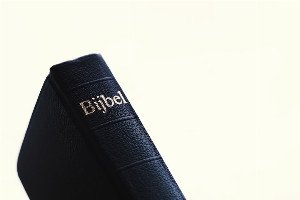Abdul Gofar
Differentiated Learning in the Subjects of the Qur'an and Hadith
Introduction
Differentiated learning in the subjects of the qur'an and hadith. Discover how differentiated learning in Qur'an Hadith subjects optimizes diverse student potential, boosts engagement, and improves academic & spiritual development.
Abstract
In the process of learning the Qur'an Hadith, challenges are often encountered in maximizing the potential of students who have different abilities, interests, and learning styles so that learning seems boring, not to mention the gap in student abilities due to residence, some live in Islamic boarding schools and from home so that their knowledge of religion is very different so that a learning model is needed that is able to accommodate these differences. This study aims to analyze the application of differentiated learning in the subject of the Qur'an Hadith at MA Miftahul Qulub Mojokerto. This learning model is used as part of an effort to increase student interest in learning and optimize student potential, and determine its impact on two aspects of student development: academic and spiritual. The approach used is descriptive qualitative, with the research objects of the Qur'an Hadith teachers and students of grades X and XII in the even semester of the 2024/2025 academic year, with two study groups each using the independent curriculum. Data were collected through observation, in-depth interviews, and documentation, then analyzed using data reduction techniques, data presentation, and conclusion drawing. The research results show that the implementation of differentiated learning helps teachers adapt teaching strategies to the diverse needs of students. Both teachers and students demonstrate enthusiasm for learning and impact two aspects of student development: academic and spiritual. This method enables students with varying levels of ability to understand the subject matter better. This learning implementation is carried out systematically through three stages: planning, implementation, and evaluation, which aligns with the principles of the independent curriculum. However, challenges faced include teachers' limited time to prepare materials appropriate for each group of students and the difficulty of effectively monitoring individual development. Nevertheless, differentiated learning is considered effective in optimizing student potential.
Review
This study presents a timely and relevant exploration into the application of differentiated learning within the challenging context of Qur'an Hadith subjects. Addressing the significant hurdles posed by diverse student abilities, interests, learning styles, and varied religious backgrounds (boarding school vs. home), the research aims to analyze how this pedagogical approach can enhance engagement and optimize student potential. Utilizing a descriptive qualitative methodology at MA Miftahul Qulub Mojokerto, the study effectively uncovers the practical implementation of differentiated learning. The initial findings strongly suggest that this model is successful in helping teachers adapt their strategies to individual student needs, fostering enthusiasm among both educators and learners, and ultimately leading to improved understanding of the subject matter. A significant contribution of this research lies in its dual focus on the impact of differentiated learning on both academic and spiritual development, aspects particularly pertinent to religious education. The abstract indicates a positive influence on these critical areas, suggesting that tailoring instruction can holistically benefit students. The systematic three-stage implementation—planning, implementation, and evaluation—demonstrates a robust and thoughtful approach, aligning well with the principles of the independent curriculum. The qualitative approach, employing observation, in-depth interviews, and documentation with teachers and students, appears well-suited to capture the nuanced experiences and perceptions of differentiated learning in practice. While the study largely affirms the effectiveness of differentiated learning in optimizing student potential, it candidly highlights crucial practical challenges. The most prominent issues include teachers' limited time for preparing tailored materials for diverse groups and the inherent difficulty in effectively monitoring the individual development of each student. These limitations are critical considerations for any institution looking to adopt such an approach and warrant further investigation. Despite these hurdles, the research concludes that differentiated learning is effective, providing valuable insights for educators in religious schools. Future research could explore specific strategies to mitigate these time and monitoring constraints, perhaps through collaborative planning models or technology integration, to further enhance the sustainability and scalability of this beneficial pedagogical approach.
Full Text
You need to be logged in to view the full text and Download file of this article - Differentiated Learning in the Subjects of the Qur'an and Hadith from Chalim Journal of Teaching and Learning .
Login to View Full Text And DownloadComments
You need to be logged in to post a comment.
Top Blogs by Rating
Your Digital Shadow: What Stat...
By Sciaria
The Evolution of Knowledge in...
By Sciaria
Is Electro Music the New Class...
By Sciaria
Favorite Blog
Unlocking Life's Source Code:...
By Sciaria
The Spiritual Shelf Life: Navi...
By Sciaria
Beyond the Charts: Unlocking S...
By Sciaria
Related Research
Rainfall simulations on steep calanco badlands to generate input for erosion modelling
Reseña de muñoz-basols, javier; fuertes, mara; cerezo, luis. 2024. la enseñanza del español mediada por tecnología. de la justicia social a la inteligencia artificial (ia). londres y nueva york: routledge.
Change laboratory in brazil: origins, development, and dissemination
Share
Notice Board
- DAVID ESCUDERO. NEOREALIST ARCHITECTURE: AESTHETICS OF DWELLING IN POSTWAR ITALY. FOREWORD BY ANDREW LEACH
- INNOVATION AND EXPANDING HORIZONS WITHIN RESEARCH AT THE UNIVERSITY OF MANITOBA
- EVALUATION OF CORPORATE SOCIAL RESPONSIBILITY DISCLOSURE OF PT SOLUSI BANGUN INDONESIA TBK CILACAP PLANT BEFORE AND AFTER THE NAME CHANGE





